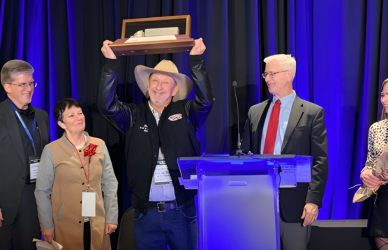Legislation addressing vehicle idling has become a focal point in various statehouses across the nation, from Vermont to Washington.
In Washington, Senate Bill 6304, championed by Committee Chairman Marko Liias, seeks to align the state with California’s regulations by imposing a five-minute idling limit on diesel trucks and buses weighing over 10,000 pounds. Fines mirroring California’s penalties, ranging from $300 to $1,000 per day, could be levied, with additional penalties for non-compliance within 90 days. The bill extends its reach to diesel-fueled auxiliary power systems near restricted areas.
However, concerns have been raised by industry representatives, like Jeff DeVere of the Washington Trucking Association, who argues that addressing inefficiencies in the supply chain is pivotal to meet consumer demands effectively.
“It seems we’re just going to wholesale adopt those rules without consideration to the environment we have here in Washington,” DeVere said. “I think we really need to take a look at these – how this works here. We need to start looking past just putting this on the backs of trucks. … Trucks don’t want to idle. They would much rather be traveling down the road.”
Senate Bill 6304 has advanced to the Senate Rules Committee.
Meanwhile, New York is also making strides in regulating idling. Bill S1178 aims to include passenger vehicles under a five-minute idling restriction, with a three-minute limit for subsequent violations, accompanied by fines starting at $150. Through Assembly Bill A721, New York City contemplates imposing $150 fines for idling beyond three minutes while parking.
The bill’s memo states that it “seeks to address the fact that more than half of New York’s 19 million residents live in counties where unhealthy air endangers their lives and health.”
In Utah, Senator Nate Blouin sponsors SB153, granting local highway authorities the power to restrict commercial vehicle idling on public property. The bill proposes a three-minute limit for idling in certain counties, with fines set at the county level. The legislation also introduces a provision allowing individuals to report violations, with a potential reward of up to 25% of any collected fine.
Rick Clasby, a member of the Utah Trucking Association, cited concerns with the bounty aspect of the bill.
“The bounty creates a real challenge. That is just going to irritate people if they are being videotaped and photographed, and would have undesired consequences,” Clasby said.
In Vermont, Senate Bill S257 proposes a revision to the state’s idling rule, allowing enforcement as a secondary offense, permitting violations only when a primary offense is suspected. The bill currently resides in the Senate Judiciary Committee.
As states grapple with idling regulations, these legislative moves reflect ongoing efforts to balance environmental considerations with the practical needs and concerns of various stakeholders within the transportation industry.
Source: Land Line











